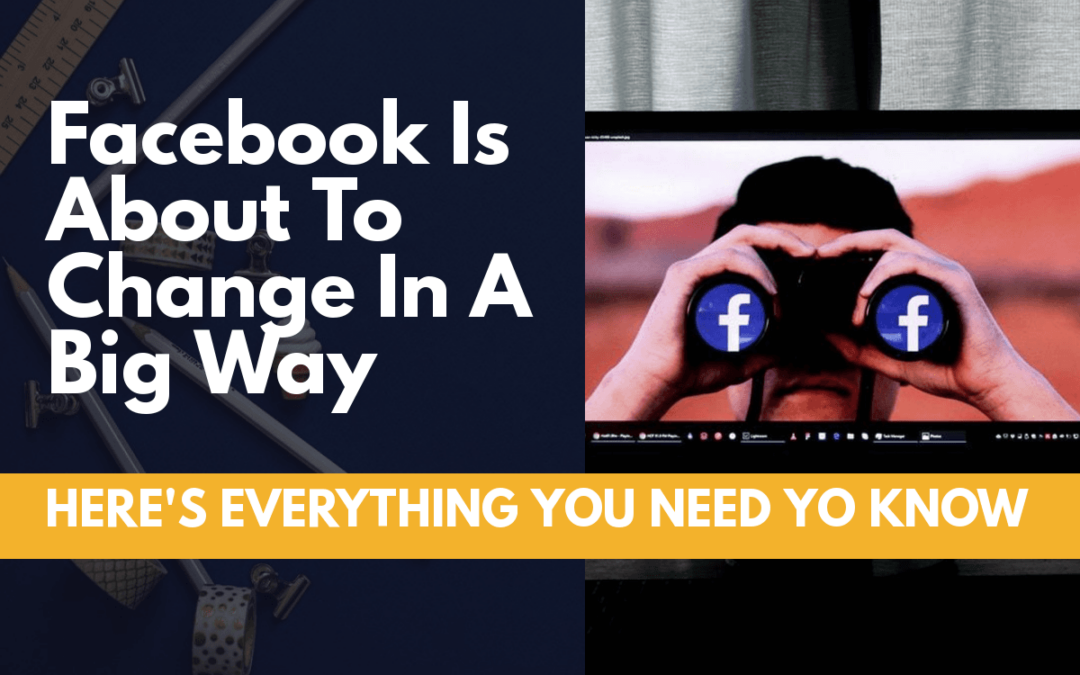Facebook had a pretty rough year in 2018, the Cambridge Analytica scandal, Mark Zuckerberg being called to testify before the US Congress and among other issues that they had to deal with. So, it should come as no surprise to anyone that they are going to be making some significant changes in the months and years to come. Two weeks ago, Mark Zuckerberg published a note entitled “A Privacy-Focus Vision for Social Networking.”
Facebook’s stated goal for the past 15 years has been to make the world more open and connected. (And, the unstated goal was constructing a targeted advertising system built on nearly unlimited data.) Now, Facebook is changing the game, moving from an open world to one where the focus is on privacy.
In his note published two weeks ago, Zuck outlined the company’s vision and principles around building a privacy-focused messaging and social networking platform. According to Zuckerberg’s note, this privacy-focused platform will be built around several principles:
Private interactions. People should have simple, intimate places where they have clear control over who can communicate with them and confidence that no one else can access what they share.
Encryption. People’s private communications should be secure. End-to-end encryption prevents anyone — including us — from seeing what people share on our services.
Reducing Permanence. People should be comfortable being themselves, and should not have to worry about what they share coming back to hurt them later. So we won’t keep messages or stories around for longer than necessary to deliver the service or longer than people want them.
Safety. People should expect that we will do everything we can to keep them safe on our services within the limits of what’s possible in an encrypted service.
Interoperability. People should be able to use any of our apps to reach their friends, and they should be able to communicate across networks easily and securely.
Secure data storage. People should expect that we won’t store sensitive data in countries with weak records on human rights like privacy and freedom of expression in order to protect data from being improperly accessed.
The above is quite interesting; Facebook has already started on the privacy train with Whatsapp by making conversation end to end encrypted, so no one can ever read your messages, not even Facebook themselves. The messages will only be seen by the people we sent them to. Not even hackers can access our messages. This is great; I like the idea of people not being able to see my messages. However, the good also comes with the bad, protecting my information and the things I am posting and sending also means protecting that of people who want to use the service to do bad things as well. So there needs to be a balance there.
I also like the focus on reducing permanence. In the past couple of months, many careers have been destroyed based on things people posted years ago when they were younger. While some deserved what happened to them, others didn’t. So while I am not sure whether this focus on reducing permanence will mean all our content will now be “story” type content or something else where we get to select when our content expires, it will be interesting to see what is to come. Now, people can still screenshot your post and use it against you, so the fact that content may last 24 hours or so doesn’t give you the leeway to post whatever you want and think there will be no consequences. Keep that in mind.
Facebook announced earlier this year that it was working on combining Facebook messenger, WhatsApp, and Instagram DM in one app and that’s where their focus on interoperability comes in. It’s not a case where they are making all of these one app per se, what’s going to happen is people will be able to communicate from the app of their choice to others on the app they choose. So I can use Facebook messenger to talk with someone on Whatsapp. You can choose not to do that and keep your apps separate as well.
You can read Mark Zuckerberg Full note here
Facebook hasn’t indicated when all these changes will be taking place. However, we should start seeing some changes in the next couple of years, starting as early as within the next six months. What are your thoughts on this?
